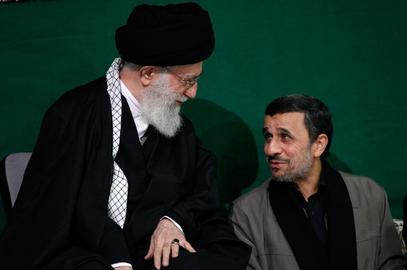On Wednesday, September 28, Judge Ghomizadeh of Tehran’s Revolutionary Court of Appeals upheld an earlier verdict against human rights activist Narges Mohammadi. In May, Judge Abolghasem Salavati of the Revolutionary Court sentenced Mohammadi, vice-president of Iran’s Defenders of Human Rights Center, to 16 years in prison. The appeals court had ostensibly given Mohammadi time to offer new evidence in her defense.
Mohammadi’s lawyer, Mahmoud Behzadi-Rad, had predicted a different result. He had hoped that Mohammadi’s sentence would be reduced based on Article 134 of the new Islamic Republic Penal Code, which had imposed a convoluted new set of sentencing limits.
It reads, “If the offenses committed are greater than three, [the court] shall impose more than the maximum punishment provided for each crime, provided that it does not exceed more than the maximum plus one half of each punishment.”
In this case, Mohammadi’s longest sentence for one “offence” was 10 years. This pertained to her membership in the group “Step by Step to Stop the Death Penalty.”
Taghi Rahmani, Mohammadi’s husband, has spent 14 years of his life behind bars in Iran. He told IranWire that the appeals court verdict was “revenge by the Intelligence Ministry against a human rights activist for her activities in defending human rights. It is revenge for the rally [she held] outside the parliament to protest against acid attacks, and for her support for women without support. The Intelligence Ministry is behind this.”
Rahmani, who now lives in France, told IranWire in June that, “The plaintiff filing against Narges is the Intelligence Ministry. If this ministry takes back its complaints, there will be no plaintiff and many political and civil rights activists will be freed.”
Rahmani says that Mohammadi’s lawyers had asked for time to present the court with new evidence, but that when they had gone to court to present it, they were simply given the verdict. Rahmani believes Mohammadi was likely prepared for the verdict.
In June 2016, Mohammadi went on a 19-day hunger strike to gain permission to communicate with her children, who now live in Paris with their father. She is in poor health, and has been receiving medication for an epilepsy-like disease that causes her to lose muscle control. Rahmani says that while the medications alleviate her symptoms, they do nothing to address her condition.
The court’s decision has met protests online, where Mohammadi already enjoys substantial public support. Back in June, when Mohammadi was on the 15th day of her hunger strike, so many Twitter users expressed their support that messages on her behalf created one of the largest-ever Twitter “trends.”
Rahmani then wrote on his Facebook page that these voices must be heard, but that they had no effect on the Intelligence Ministry’s “vendetta” against his wife, or on the judiciary. Now, it seems likely that Mohammadi will spend a minimum of 10 years behind bars while suffering from a serious ailment.
“Isn’t the haste in issuing such a heavy sentence for a human rights activist an affront to human rights or human dignity?” Rahmani wrote on Facebook after he received the news.
Many civil and political activists believe that one reason for Mohammadi’s heavy sentence is Iranian officials’ resentment of her 2014 meeting with EU Foreign Affairs Representative Catherine Ashton.
In May 2016, UN High Commissioner for Human Rights Zeid Ra’ad Al Hussein condemned the verdict against Mohammadi. His spokesperson Ravina Shamdasani said, “We are appalled by the sentencing of a prominent Iranian anti-death penalty campaigner, Narges Mohammadi, to 16 years’ imprisonment on charges that stem from her courageous human rights work. The human rights defender is believed to have serious medical conditions and has reportedly not been granted adequate access to the specialized medical care she needs. The UN human rights office and other human rights mechanisms have long urged the Iranian authorities to release Ms. Mohammadi, but to no avail.”
Narges Mohammadi has won many honors from human rights organizations. On the eve of World Press Freedom Day, Reporters Without Borders honored Mohammadi in Paris.
Rahmani collected the "Heroes of Information" award on his wife’s behalf on May 2.


























comments